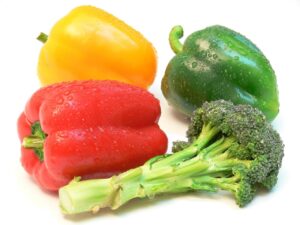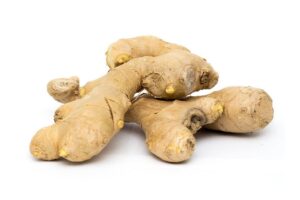The famous quote by the Greek physician Hippocrates says,
“Let food be thy medicine, and let medicine be thy food.”
We’ve all heard about the benefits of adding immunity boosting foods to our diets. Check out these four immune boosting foods to add to your family’s eating plan.
Probiotics
Probiotics are living microorganisms that naturally occur in fermented foods such as yogurt, kefir, sauerkraut and some pickled foods. These ‘live and active cultures’ aid your digestion and also can help you fight off sickness. Yogurt is also a great source of vitamin D which also support our immune system.
Yogurt can make a healthy, immunity boosting snack for kids of all ages. Remember to read product labels and choose brands with lower amounts of added sugar. Consider making your own low-sugar blends by adding chopped fruit, nuts or a spoonful of all-fruit spread to plain yogurt.
Vitamin C
 Vitamin C is a well-known immunity boosting food. This vitamin is thought to increase the production of white blood cells, which are key to fighting infections in the body.
Vitamin C is a well-known immunity boosting food. This vitamin is thought to increase the production of white blood cells, which are key to fighting infections in the body.
A glass of orange juice is not your only option to increase vitamin C in your family’s diet. Consider eating more fruits and veggies that are high in vitamin C such as bell peppers, broccoli, sweet potatoes, and spinach. All of these fruits and vegetables make easy and tasty snacks and side dishes – red bell pepper slices, broccoli and ranch dip, and roasted sweet potato fries.
Zinc
Another immunity booster is the mineral zinc. Deficiency of this essential mineral can keep your immune system from working efficiently.
Zinc can be found in beans, seeds, nuts, meat, poultry and seafood. Nuts are a convenient and nutritious snack, and there are so many to choose from. Try adding chia or flax seeds to your oatmeal or muffins for a nutritional boost.
Ginger
 Ginger is a well-known natural remedy for nausea. The flavorful root contains gingerol – a relative of capsaicin found in spicy peppers which may help reduce inflammation in our bodies.
Ginger is a well-known natural remedy for nausea. The flavorful root contains gingerol – a relative of capsaicin found in spicy peppers which may help reduce inflammation in our bodies.
Ginger can provide a flavor boosting punch to many recipes. Consider adding fresh ginger to a stir fry, soup, or a smoothie. Fresh ginger root can even be steeped to make tea!
Remember that it is always better to get your nutrients from whole food sources versus supplements. Don’t forget to consider any food sensitivities or allergies, especially for children with allergies and asthma. Check in with your healthcare provider if you have specific questions relating to your child’s nutrition and diet.
Additional Resources:
Five Healthy New Year’s Resolution Ideas for Families
Exposure to Healthy Foods on TV can Influence Kids’ Food choices
Vegetable Image by Maciej Rudnicki from Pixabay
Ginger Image by Joseph Mucira from Pixabay

























